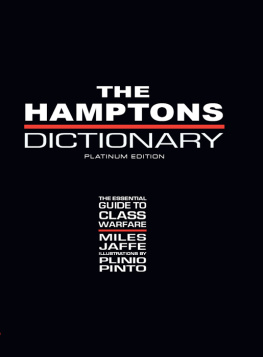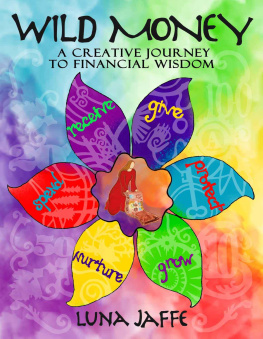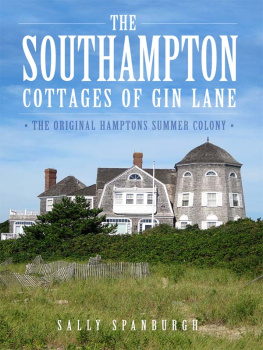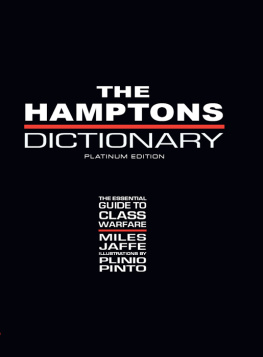
THE HAMPTONS DICTIONARY
Written by
MILES JAFFE
Published by
THE DISINFORMATION COMPANY
163 Third Avenue, Suite 108
New York, NY 10003
Tel: +1.212.691.1605
Fax: +1.212.691.1606
www.disinfo.com
copyright Miles Jaffe, 2008
Illustrations copyright Plinio Marcos Pinto 2008
All rights reserved. No part of this book may be reproduced or transmitted in any form or by any means, electrical or mechanical, without the written permission of the publisher except in the case of brief quotations embodied in critical articles or reviews.
PLATINUM EDITION
ISBN 978-1-934708-04-0
Library of Congress Control Number: 2008922087
Printed in the USA
10 9 8 7 6 5 4 3 2 1
Distributed in the USA and Canada by
CONSORTIUM BOOK SALES AND DISTRIBUTION
1045 Westgate Drive, Suite 90
St. Paul, MN 55114
Toll Free: +1.800.283.3572
Local: +1.651.221.9035
Fax: +1.651.221.0124
www.cbsd.com
www.redwheelweiser.com
www.redwheelweiser.com/newsletter
for Norman,
who among other things,
taught me how to make chicken salad
out of chicken shit
Contents
FOREWORD
Accidents happen, and so did this book.
For years I'd been trying to capture the East End experience in a meaningful way. The essence of this experience is of course the irony that some of the wealthiest and most privileged people in the world are at least judging by their behavior some of the most miserably unhappy people on the planet.
Long ago I discovered that the kind of people who commissioned luxury vacation houses were all too often the kind of people who failed to pay their architects and builders. Years of this kind of experience took its toll, and in April of 2001 I struck back with NukeTheHamptons.com, enabling anyone with an internet connection to drop a nuclear weapon on the Hampton of their choice in virtual reality.
When the dozen friends I emailed the link to turned into a thousand hits the next day and with the global media attention that quickly followed, it was apparent that I had struck a nerve. Email poured in from around the world with targeting requests. Hundreds of thousands of people continue to visit the site each year, raining untold gigatons of virtual nuclear warheads right down on our very heads.
Ultimately, however, that mission was a failure. Sure, the Hamptons had been reduced to smoldering radioactive craters millions of times, but the intent had been to get people to think about their own behavior, and the closest I came to that was the choice of whether or not to push the button. Those most in need of a little introspection were the least likely to ever visit the site.
So I turned to another medium and tried to write about this bizarre unreality, in which Tom Wolfe's masters of the universe are simply John Doughs lost in anonymity among tens of thousands of the equally rich and clueless, the kind of people who confuse privilege with entitlement, the kind of people who make Angri-La out of Shangri-la.
One day, while reviewing some notes for an essay, I optimistically imagined that readers would be confused by some of the terminology I used. In my mind's eye I could see them scratching their heads over hamperage (the magnitude of a Hamptons event) or philandrapist (a real estate developer). The way to fix this, I thought, would be to make a glossary defining those words and expressions that might not be perfectly clear.
While jotting down a few terms and their definitions, a few more came to mind, and then a few more soon I had well over a hundred. As I began to pay more attention to our language, specifically to how we use language here, I discovered numerous words and expressions that have been locally redefined, often in an ironic or sarcastic manner.
For example, while The American Heritage Dictionary defines upscale as of, intended for, or relating to high-income consumers, it is commonly used to mean pretentious, overpriced or appealing to the uneducated palates of the nouveau riche. What one person might call upscale and find attractive (such as a large neoclassical vacation house) might be something quite unattractive to another (a McMansion, megacottage or even a dreaded Frankenhouse). Thus the meanings that we individually apply to words is a reflection of our own system of values, which is itself the result of our daily experience, whether social or occupational.
Wait a minute wasn't that exactly what I'd been trying to write about?
The Hamptons Dictionary had been born, and the original essay vanished faster than an empty parking space in East Hampton Village on a rainy Saturday in August. I had stumbled upon a way to write, in a specific and pointed manner, about the often neurotic behavior of the ubr rich and the incessantly aspiring marginally rich as well as those of us who must deal with them in order to earn our daily bread, make it through another interminable summer or even just the next four-day weekend.
The search for a Hamptons vocabulary was on. I pestered friends and strangers alike for terms they used to define the bizarre social conditions we struggle with here daily on the East End. I challenged everyone I met, even complete strangers, to come up with at least one term that I could use. A town cop described Hamptonite as a Mercedes Benz driving ignoramus who stops at the scene of an accident to ask for directions. The owner of a tennis club defined tennis racket as high court fees. A cabinetmaker explained pillow talk as empty promises made to a subcontractor.
The tables were soon turned as friends began challenging me to find specific terms for well-defined but as yet unnamed behaviors. I scoured dictionaries and etymologies, checking roots, prefixes and suffixes for clues to the word or expression that would describe in crystal clarity the behavior I was trying to name.
For instance, what do you call a person who is obsessed with the quality of their lawn at the expense of all other life on the planet? Lawn brings to mind sod, from Middle English sode (turf). Sod is also British slang for sodomite, which adds a degree of, how shall we say, immoderation. Add the suffix -ist (one who is or does) and you have sodomist, one who is perversely obsessed with their lawn. This describes a person who acts as if their lawn should be, at the very least, equal in quality to the greens at Augusta National on the opening day of the PGA tour (and God help you if you are the landscaper and it's not).
Overnight I became a word junkie, constantly on the prowl for a new fix. My office became a landfill of reference material ranging from Thorstein Veblen's 1899 Theory of the Leisure Class to McLaughlin and Kraus' The Nanny Diaries. I even read things I had shunned before, such as the style section of The New York Times, the weekly cultural guide for sheeple. Okay, truth be told, I didn't really read it I just scanned it every week, along with some local ad rags like Hamptons Magazine and a number of other things I wouldn't normally be caught dead actually reading.
In this manner I discovered an extensive vocabulary one that extends well beyond my own perverse inner dialogue that brightly illuminates the shadowed underbelly of wealth and success. Some are existing words or expressions (like upscale) that have simply been redefined with a more acute and often ironically contradictory meaning.
Next page








